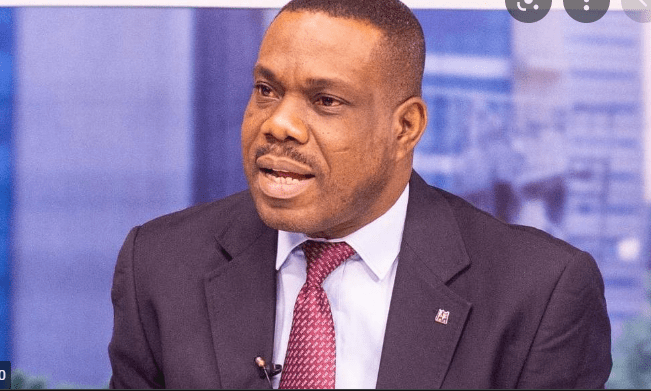The government of Ghana has launched thorough processes aimed at restructuring the Internal Audit Agency in a significant move to improve financial transparency and accountability within the public sector.
The Director-General of the Internal Audit Agency, Dr. Eric Oduro Osae, highlighted this development, emphasizing the importance of preventing financial irregularities in the public sector.
The restructuring effort is consistent with broader steps to ensure the country’s prudent use of the International Monetary Fund’s (IMF) US$3 billion extended-credit facility.
Speaking at the esteemed 9th African Federation of the Institutes of Internal Auditors (AFIIA) Governance Forum, Dr. Oduro Osae noted that as part of Ghana’s commitment under the IMF deal, the country has embarked on a series of post-pandemic programs aimed at building resilience and fostering stronger economic growth.
This, he said, included the implementation of an ambitious structural reform agenda that seeks to invigorate private sector-led growth by improving the business environment, governance, and productivity.
The IMF’s Executive Board approved a Special Drawing Rights (SDR) allocation of US$3 billion for Ghana on Wednesday, May 17, 2023. This decision facilitated an immediate disbursement of approximately US$600 million, with the remainder expected to be disbursed in tranches every six months, subject to IMF Executive Board reviews.
Dr. Oduro Osae reaffirmed the government’s commitment to improving the functioning of the Internal Audit Agency through the ongoing reorganization process.
According to the Director General, the objectives of this restructuring endeavor include enhancing independence, providing adequate resources, strengthening technical capacities, and placing a renewed focus on the internal audit function. These measures are intended to effectively prevent financial irregularities within public institutions.
Internal Audit Agency Partners With SIGA To Facilitate Revolutionary Change In The Public Sector
Beyond the restructuring prompted by the IMF deal, Dr. Oduro Osae highlighted the agency’s collaboration with the Institute of Internal Auditors-Ghana and the State Interest Governance Authority (SIGA) in driving transformative change within the public sector.

This collaborative effort, he disclosed, has led to plans to develop a ‘Unified Corporate Governance Code,’ which will serve as a comprehensive guideline for boards and management of public sector institutions, fostering improved governance practices.
Dr. Oduro Osae further underscored Ghana’s commitment to repositioning and restructuring the internal audit function, ensuring its enhanced responsiveness to the needs of boards and management.
Dr. Oduro Osae urged board members and management of organizations to actively involve their internal auditors and audit committees in managerial decision-making processes.
He cautioned that weak institutional structures and systems have the potential to undermine the progress and achievements made through innovation, making robust governance practices even more critical.
Harriet Akua Karikari, the President of the Institute of Internal Auditors-Ghana, expressed her expectation that the AFIIA Governance Forum would challenge and transform corporate leaders, prompting them to rethink strategies and explore creative initiatives to enhance governance, risk management, and control processes.

The AFIIA Governance Forum, hosted by Ghana, provided a unique platform for sharing knowledge, insights, and best practices in organizational processes. The forum, themed ‘Innovate to sustain,’ presented an exceptional opportunity for internal auditors to challenge traditional boundaries, explore new perspectives, and foster innovative approaches to governance, risk management, and control processes.
Read also: MPC Maintains Policy Rate At 29.5%




















